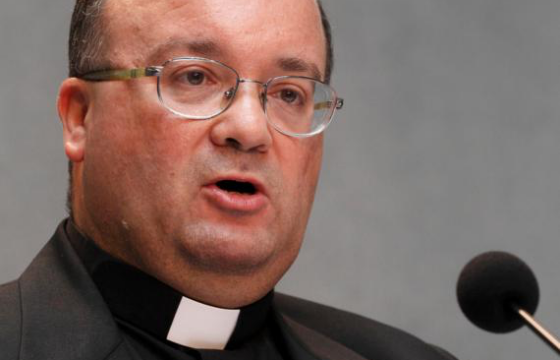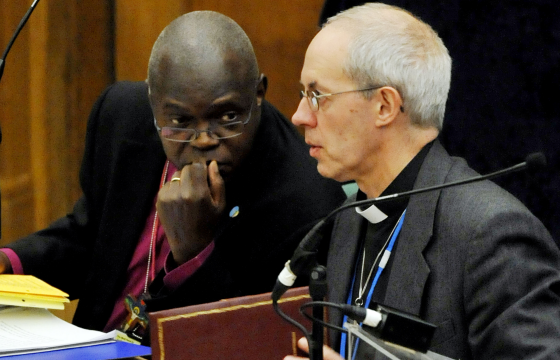The Archbishops of Canterbury and York have issued an historic statement expressing remorse for the violence and persecution of the Reformation.
In a message released ahead of the Week of Prayer for Christian Unity and to commemorate the 500th anniversary of the Reformation Archbishops Justin Welby and Dr John Sentamu reflected on the Reformation’s “legacy of mistrust and competition” and called on Christians to repent for those things that had divided the faithful.
In the statement released on Tuesday they said that the Reformation was a process of both renewal and division amongst Christians in Europe.
But they also acknowledged the “lasting damage” done five centuries ago to the unity of the Church, “in defiance of the clear command of Jesus Christ to unity in love”.
The archbishops continued: “Those turbulent years saw Christian people pitted against each other, such that many suffered persecution and even death at the hands of others claiming to know the same Lord. A legacy of mistrust and competition would then accompany the astonishing global spread of Christianity in the centuries that followed. All this leaves us much to ponder.”
Among its many great blessings, they said, were a proclamation of the gospel of grace, the availability of the Bible in the vernacular, and recognition of the calling of lay people to serve God.
The Reformers had intended to refocus people on Christ, they wrote; and it was with that focus that Christians today should ask “hard questions” about those things in their own lives, and in the lives of their churches, that blocked their sharing of him.
“Remembering the Reformation should also lead us to repent of our part in perpetuating divisions. Such repentance needs to be linked to action aimed at reaching out to other churches and strengthening relationships with them,” they concluded.
Speaking on BBC Radio 4’s Today Programme ahead of the statement’s release Catherine Pepinster, Catholic commentator and former Tablet editor, expressed doubt as to whether apologising for the Reformation was the right thing to do.
“Reformation is a history of politics as much as theological disputes, it’s also a story of conscience, I’m not sure that an apology is the right thing,” she said.
“Certainly in Rome it is clear that what happened here during the Reformation is still felt very deeply and it still affects how people think about this country. In that sense it will have an impact. In Rome itself, the perception of this country is still affected by the Reformation.”
But recalling the Pope’s October trip to Lunt in Sweden she said she though Francis was trying to move the Church on.
“He wasn’t there to celebrate the Reformation, he was clearly there to commemorate what had happened and he clearly regretted it. But, very interestingly, he did say that Catholics should be grateful to the Reformation because it meant that Scripture had become more central to Christian life and that was not something that was part of the Catholic world.”
A motion on the anniversary of the Reformation is due to be debated at the next session of the General Synod in London in February.
PICTURE - The Archbishop of Canterbury the Most Rev Justin Welby (right) and the Archbishop of York Dr John Sentamu




 Loading ...
Loading ...